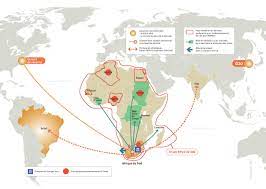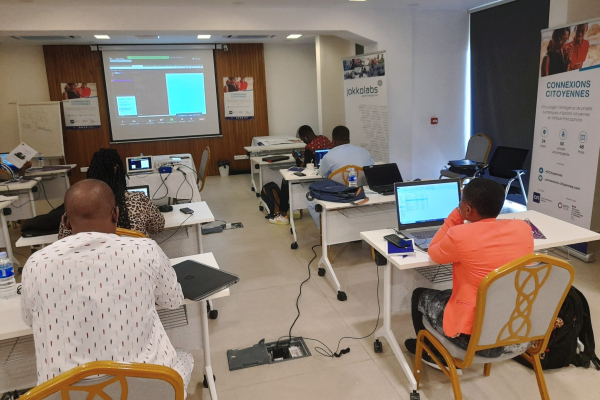Use Cases of ChatGPT in Africa: A Vector for Transformation and Innovation
Africa, with its rapid population growth and burgeoning digital transformation, presents as a fertile ground for the adoption of advanced technologies such as artificial intelligence (AI). Among these technologies, OpenAI’s ChatGPT stands out as a versatile tool capable of providing innovative solutions to the continent’s unique challenges. This article delves into the various applications of ChatGPT in Africa, demonstrating its potential as a tool for social and economic transformation.
Public Services and Citizen Engagement
The African public sector faces significant challenges in terms of transparency, efficiency, and accessibility. ChatGPT steps in as a facilitator of communication between governments and citizens. Countries like Rwanda and Ghana are already experimenting with chatbots to disseminate government information, gather feedback on public services, and engage in dialogue with citizens on political reforms. In Ivory Coast, for instance, a bot based on ChatGPT could provide information on procedures for obtaining official documents, thereby reducing queues and improving user experience.
Education and Learning
In the field of education, African classrooms are already benefiting from the integration of ChatGPT. Customized tools enable students to receive education tailored to their specific needs, get real-time answers to their questions, and strengthen educational support, especially in rural areas where teachers are often in short supply. Kenya, with its pilot project of educational chatbots, shows how learning can become more interactive and how students can benefit from personalized help after class hours.
Health and Awareness
The health sector in Africa is faced with major hurdles such as the shortage of qualified staff, the remoteness of healthcare centers, and outbreaks of disease. ChatGPT offers solutions in the form of health information platforms, offering preventive advice and answers to common health questions. In Nigeria, bots based on ChatGPT could be used to provide essential information on malaria prevention or to support vaccination campaigns.
Agriculture and Resource Management
Agriculture is the backbone of many African economies. ChatGPT, by leveraging specific data, can advise farmers on crop management, fertilizer use, or weather forecasts. For example, in Senegal, millet producers could use ChatGPT to obtain optimized planting advice, promoting a more productive and sustainable agriculture.
Financial Innovation
In the financial domain, ChatGPT fosters financial inclusion by offering virtual advisory services to individuals who lack access to traditional banking. Financial bots assist users in understanding savings products, managing their budget, or planning an investment. In Kenya, where mobile banking is widespread, ChatGPT could provide a more intuitive interface for users of services like M-Pesa.
Language and Cultural Diversity
With over 2000 languages spoken in Africa, the linguistic barrier is a significant challenge. ChatGPT’s ability to learn and interact in local languages such as Swahili, Amharic, or Yoruba is critical. This ensures that technology is more accessible and that the benefits of AI are equitably distributed across the continent.
Content Creation and Entertainment
ChatGPT also revolutionizes the field of content creation in Africa. It assists artists and content creators in generating text, scripts, and song lyrics, thus enriching local culture and entertainment. In South Africa, authors could use ChatGPT to explore new ways of storytelling inspired by Africa’s rich cultural heritage.
Conclusion: A Promising Future with ChatGPT
ChatGPT is far from being a panacea for all of Africa’s challenges, but its potential as a decision-support tool, a catalyst for development, and a bridge towards digital inclusion is immense. The key to its success lies in collaboration between technology developers, governments, educational institutions, and local communities to ensure that the solutions are ethical, sustainable, and most importantly, tailored to the specific needs of the continent.
By continuing to integrate ChatGPT into these key sectors, Africa can keep advancing on the path of progress, harnessing the power of AI to stimulate innovation and foster inclusive growth. Africa’s future with ChatGPT is thus shaping up to be a fruitful partnership between humans and machines, paving the way for an era of unprecedented digital transformation.



